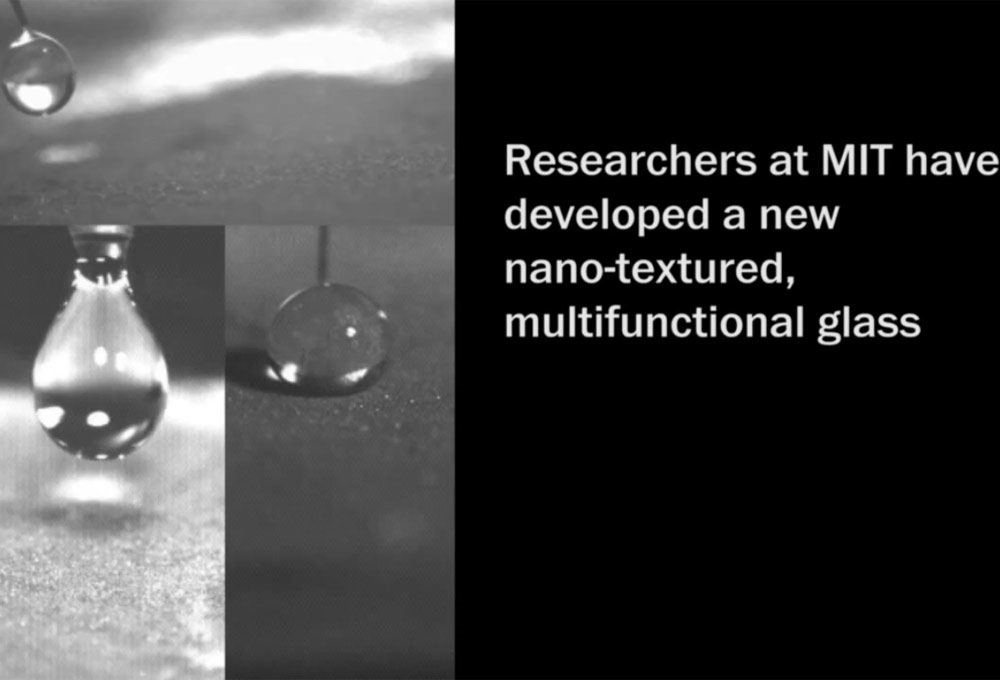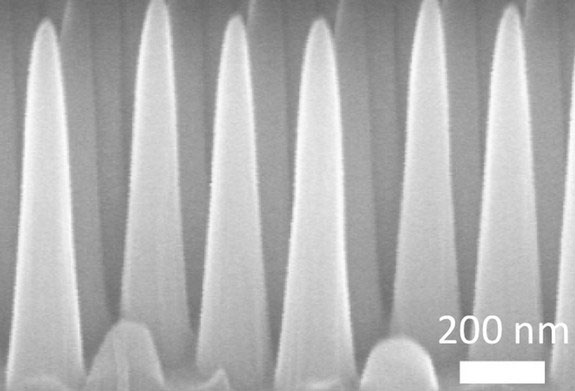Self-cleaning glass
If the surface of your mobile phone is made of self-cleaning glass, it will be free of water, dust and stains.
The anti-dirty glass is the Massachusetts Institute of Technology (MIT) invention in the US, Livescience said. Not only does it prevent adhesion, it also eliminates light reflection. The recipe for new glass is still a secret, but according to MIT's website, their glass is made of nano-sized cone elements - meaning their diameters are smaller than 1,000 to 100,000 times the diameter of the hair.

The waterproof surface of many natural objects - like lotus leaves - is the inspiration for MIT researchers to create anti-stick glass. The team's calculations show that their glass can prevent the adhesion of dew, rain, pollen and even stains left by the hands.
The advent of self-cleaning glass is good news for solar panel companies. Now many solar cells are only 60% efficient, meaning they can only turn 60% of sunlight into electricity. Dust, stains and light reflections on the surface of the battery are the culprits that cause some of the sunlight to be lost. If the surface of the solar panels is made of MIT, the amount of sunlight lost will be significantly reduced.

MIT's tempered glass is made up of these
Cone elements are nano-sized. (Photo: MIT)
Some experts say that if production costs are lowered to low levels, one can use MIT's anti-fouling glass and anti-glare glass to make the screen of cameras, mobile phones, and computers tables and many other devices.
Reference: Livescience
- Glass self-cleaning and scratch-free
- Wipe the building glass more safely thanks to smart robot
- Robot cleaning glass of tall buildings
- Moth eyes suggest researchers to develop self-glazing, anti-glare glass doors
- What is dry cleaning?
- Small fish, but 'weird' to fish eaters also abstain
- Anti-glare screen self-cleaning
- What is glass?
- Unexpected uses of Gorilla Glass
- Smart glass
- New type of shockproof glass inspired by nature
- How are the strengths produced?
 Daily use inventions come from universities
Daily use inventions come from universities Special weight loss device helps prevent appetite
Special weight loss device helps prevent appetite 8 inventors were killed by their own inventions
8 inventors were killed by their own inventions Iran invented a motor car powered by water
Iran invented a motor car powered by water